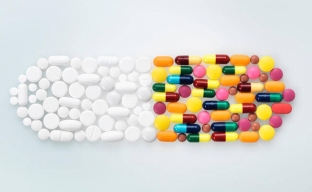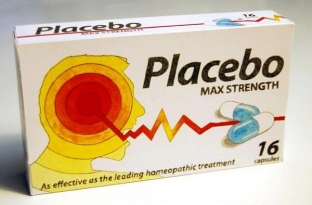"Dummy tablets" actually work – it is a fact. Studies have shown that people often respond to placebos in the same way they would to the real drug. The placebo releases dopamine and triggers other chemical reactions, mimicking the effects of drugs without the need to actually take the active ingredient. By definition, placebo – it is an inert substance that has no effect on the body. In medical research, placebos, such as sugar pills, are given to a control group to determine the effect of experimental drugs. The placebo effect is a phenomenon when a person actually believes that he is given a real drug, and his condition gradually improves. Interestingly, the placebo effect extends to surgical procedures & ndash; placebo surgeries in some cases show good results, despite the fact that the physical problem remains unresolved.
Placebo effect – Thought is stronger than real drugs?
Studying the placebo effect has shown that the power of faith can indeed work miracles.
Medical drug companies are having difficulty developing new pain medications because placebo effects are difficult to prove. volunteers show excellent response to pacifiers.
For example, as part of the study of the placebo effect, experts conducted an interesting experiment. Professional cyclists were divided into two groups. The first group was told that the volunteers would take caffeine-based supplements to improve athletic performance, and the second – new super effective drug.
However, the catch was that none of the groups received real stimulants – Volunteers in both groups received regular cornmeal dressed in the form of the drug. Then the cyclists had to overcome two cycling marathons a day: the first – before taking miracle supplements, and another – after, to evaluate the effect of "drugs".
The results were amazing: half of the cyclists completed the second distance faster than the first. One cyclist even managed to break his personal speed record. The results of such studies have been repeatedly reproduced.

The placebo effect even works in the operating room
The results of a study published in 2002 are of great interest: this double-blind, placebo-controlled, multicenter clinical trial involving 180 volunteers not only confirms the healing power of the mind, but also casts doubt on the advisability of certain operations for osteoarthritis of the knee. Half of the patients underwent a real operation, and the second – they just made an incision and showed a video showing the doctor's manipulations. Thanks to the placebo effect, the second group was no less satisfied with the results of the “operation”; (arthroscopic lavage and debridement) than the first.
The placebo effect is evident even in the case of surgical operations. Studies show that placebo surgery can be as good as the real thing.
And in 2013, a similar study found that a year after surgery for a degenerative meniscus tear, the placebo group and the actual operated patients equally experienced a reduction in pain. Accordingly, it was concluded that operations of this kind (if age-related changes, and not injuries, became the cause of the violation of the integrity of the meniscus) – waste of money.

Placebo surgeries were also performed on a group of volunteers along with real vertebroplasty (injection of special bone cement into damaged vertebrae). The study involved 130 patients. It turned out that the placebo effect helped relieve pain in volunteers who had a chance to survive a placebo operation, no worse than with a real intervention.
We'll look at:
- why placebo works;
- as evidenced by the effect of the dummy pills.
How and why does the placebo effect work?
There is no doubt about the placebo effect, but what is the reason for such a reaction of the mind and body to non-existent drugs and procedures? What is the mechanism behind the success of dummy pills and fake treatments?
Specialists identify three main factors:
- Placebo effect – a phenomenon of a psychological nature: various social stimuli, such as words and rituals, can lead to changes in the chemical processes and neural connections in the patient's brain.
- Placebo- and drug-activated mechanisms are the same, indicating cognitive/emotional interference.
- In case of impaired functions of the prefrontal cortex, the response to placebo is reduced or completely absent – this phenomenon is observed in the case of dementia or Alzheimer's disease.
Using imaging technology during the placebo trials, experts tracked the brain's response to taking dummy pills – it is based on the expectation of the effect. Placebos also activate the release of various chemicals in the brain – the placebo effect involves natural chemical reactions and mechanisms.
The placebo effect proves the superiority of consciousness over matter
Expectations play an important role in the healing process. There is a connection between mind and body – that's why when you believe that a pill or surgery will relieve your condition, the brain starts releasing the appropriate chemicals. And the stronger the belief or expectation, the higher the likelihood of a favorable outcome.
Dr. Felicity Bishop, author of one of the studies on the placebo effect, notes some of the characteristics of patients' reactions to drugs (real or placebo):
- capsules are more effective than tablets;
- the larger the capsule, the more effective it is;
- the more expensive the medicine, the more effective it is;
- red pills are most effective in relieving pain;
- blue pills are most effective as sedatives.
Estet-portal.com advises: follow the recommendations of doctors, tune in to the positive, believe in the best – and then your body will respond with good health, and diseases will recede!






Add a comment